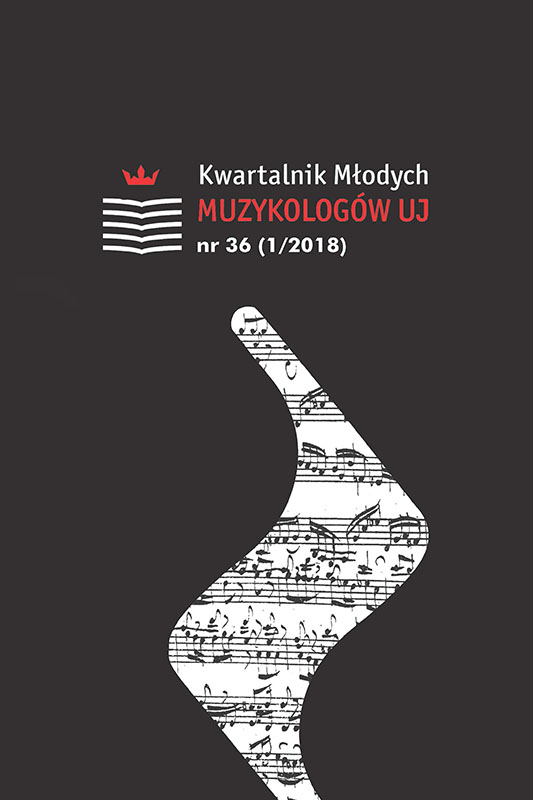Chopin na barykadach, czyli o socrealistycznych narracjach w 1949 roku
Chopin on Barricades: About the 100th Anniversary of Chopin’s Birth (1949) and Socialist Realism Doctrine in Poland
Author(s): Michał BrulińskiSubject(s): Politics, History, Philosophy, Social Sciences, Language and Literature Studies, Literary Texts, Education, Fine Arts / Performing Arts, Cultural history, Media studies, Music, Poetry, Studies of Literature, Aesthetics, Political Sciences, Civil Society, Communication studies, Sociology, Comparative history, History of ideas, Social history, Recent History (1900 till today), Special Historiographies:, Polish Literature, State/Government and Education, Sociology of Culture, Sociology of the arts, business, education, Post-War period (1950 - 1989), History of Communism, Film / Cinema / Cinematography, Sociology of Art
Published by: Koło Naukowe Studentów Muzykologii UJ
Keywords: socialist realism; socrealism; Fryderyk Chopin; Polish People’s Republic; 1949
Summary/Abstract: The main aim of this paper is to examine the discourse on Frédéric Chopin that took place in Poland in 1949, when the 100th anniversary of his birth coincided with the culmination of the socialist realist propaganda in the field of Polish culture. The discourse, initiated and moderated under effective surveillance of the Polish People’s Republic’s government, was filled with communist ideology. The authorities aimed at creating a sense of com-munion in the Polish nation, therefore they undertook numerous actions in the area of cultivating memory of Chopin and reception of his works. The composer was used as a banner under which culture of socialist realism was to be consolidated. Chopin was presented by the narrators in the socialist realist context in various dimen-sions. “Deep humanism”, “truth”, “optimism”, “sincerity” and “democratic features” of Chopin’s music were the crucial notions used by them. Chopin was depicted, among others, as a revolutionist and a prophet of tri-umph of communism. The oeuvre of Chopin was said to bring together “fraternal countries and nations”, Polish People’s Republic and Soviet Union, while being simultaneously a crucial element of class conflict. The authori-ties had a tendency to overemphasize folk roots of his compositions, thus among musical genres composed by Chopin the importance of Mazurka was exaggerated. Other genres without such strong folk connotations, as sonatas, ballades and scherzos, were marginalized in the discourse.
Journal: Kwartalnik Młodych Muzykologów UJ
- Issue Year: 2018
- Issue No: 01 (36)
- Page Range: 75-109
- Page Count: 35
- Language: Polish

